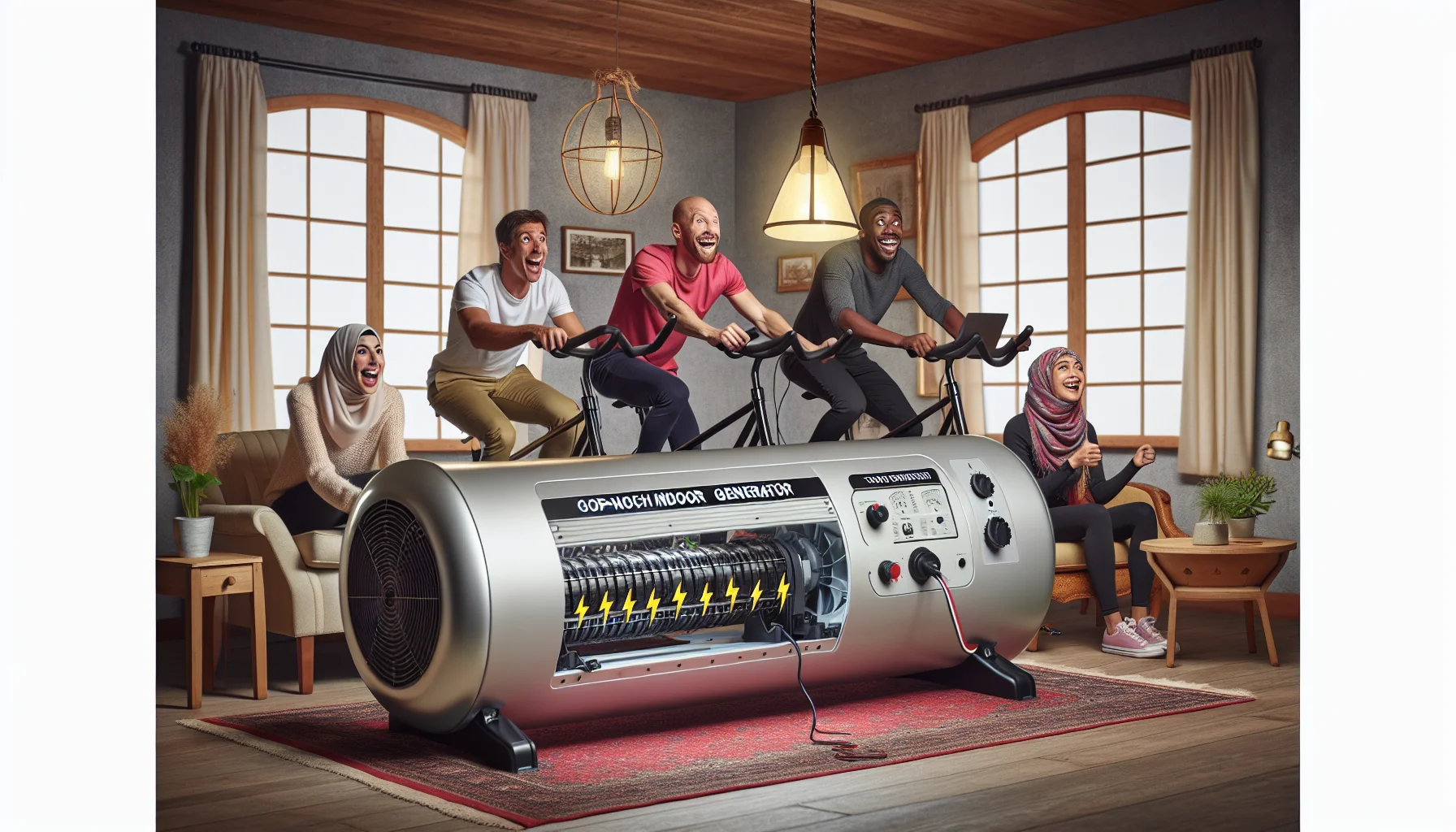Best Indoor Generator Quiz
Test Your Knowledge
Question of
The Ultimate Guide to the Best Indoor Generators
Having a reliable indoor generator is essential for anyone looking to ensure their home remains powered during an emergency or for those interested in generating their own electricity off-grid. These generators provide a safe, efficient, and convenient source of power when you need it most, making them an invaluable tool for modern living. In this guide, we'll explore the top options available on the market, helping you make an informed decision to meet your energy needs.
Why You Need an Indoor Generator
Indoor generators have become an essential tool for many households, providing a reliable power source during unexpected power outages, natural disasters, or as a part of a sustainable living approach. The benefits of owning an indoor generator are manifold. Firstly, they offer an immediate solution to power disruptions, ensuring that essential appliances and medical devices remain operational, thereby safeguarding your family's comfort and health. Moreover, in regions prone to natural disasters such as hurricanes, earthquakes, or floods, having an indoor generator can make a significant difference in emergency preparedness, reducing the reliance on external power sources which may be compromised. Additionally, for those committed to reducing their carbon footprint, indoor generators that utilize renewable energy sources like solar power present an eco-friendly alternative, contributing to a more sustainable future. Ultimately, the peace of mind and security that come with having an indoor generator at your disposal cannot be overstated, making it a wise investment for any household.
Top Features to Look for in an Indoor Generator
- Power Output - Ensure the generator can handle your essential power needs.
- Fuel Type - Consider the type of fuel it uses, such as gasoline, propane, or battery-powered, for convenience and safety.
- Noise Level - Look for generators designed to operate quietly to minimize disruption.
- Size - Choose a size that fits well within your intended space without being too bulky.
- Portability - If you plan to move the generator between locations, check for features like wheels and handles.
5 Best Indoor Generators of the Year
| Generator Name | Power Output | Fuel Type | Noise Level | Price |
|---|---|---|---|---|
| EcoFlow Delta Pro | 3.6kW | Battery | 49 dB | $3,599 |
| Jackery Explorer 1000 | 1kW | Battery | 52 dB | $999 |
| Goal Zero Yeti 1500X | 1.5kW | Battery | 45 dB | $1,999 |
| Bluetti AC200P | 2kW | Battery | 48 dB | $1,599 |
| Anker Powerhouse II 800 | 0.5kW | Battery | 52 dB | $699 |
How to Safely Use and Maintain Your Indoor Generator
Indoor generators are a convenient and sometimes necessary power source for homes and businesses. However, to ensure they operate safely and efficiently, it is crucial to follow proper use and maintenance guidelines. Here are some essential tips on safely using, maintaining, and storing your indoor generator.
Safe Operation Practices
Always read the manufacturer's manual before operating your indoor generator. This will familiarize you with the specific safety features and operating procedures of your model. Ensure the generator is placed in a well-ventilated area to avoid the buildup of harmful exhaust fumes. Never operate the generator in enclosed spaces or near open windows and doors to prevent carbon monoxide poisoning. Regularly check the generator for any signs of wear and tear, and promptly replace parts as necessary.
Maintenance Practices
Maintaining your indoor generator is key to its longevity and efficiency. Change the oil regularly, according to the manufacturer's recommendations, and always use the type of oil specified for your model. Keep the air filter clean and replace it when it becomes worn out. Check the spark plugs and replace them if they are damaged or worn. Ensure that the fuel system is clean and free of leaks. Regularly inspect the battery, keeping it charged and replacing it if it no longer holds a charge.
Proper Storage
When not in use, store your indoor generator in a cool, dry place. If storing for an extended period, drain the fuel to prevent degradation and damage to the fuel system. Disconnect the battery if your generator has one, to prevent it from draining. Cover the generator to protect it from dust and moisture. Before using the generator again, perform a thorough check to ensure it is in good working condition.
By following these tips, you can safely use and maintain your indoor generator, ensuring it serves you efficiently for many years. Remember, safety should always be your top priority when operating any type of generator.
Indoor Generator FAQs
- How do indoor generators work?
- What are the best places to use an indoor generator?
- How do I choose the right indoor generator for my needs?
- Are indoor generators safe to use inside the house?
- How do I maintain my indoor generator?
- Can indoor generators power my entire home during an outage?
- What is the difference between an indoor generator and a portable generator?
- How long can an indoor generator run continuously?
- Do indoor generators need to be vented?
- What should I do if my indoor generator stops working?
Conclusion: Empowering Your Home with the Best Indoor Generator
Selecting the right indoor generator is a crucial decision that can significantly impact your comfort, security, and energy independence. A well-chosen generator ensures that you are prepared for any situation, providing a reliable power source during outages or emergencies. It offers peace of mind, knowing that your essential appliances and devices will remain operational when you need them most. By carefully considering your specific needs and the features of available generators, you can empower your home with a solution that brings both convenience and resilience.












